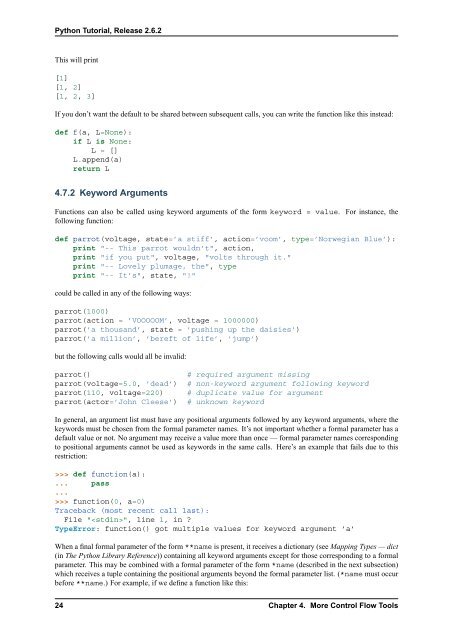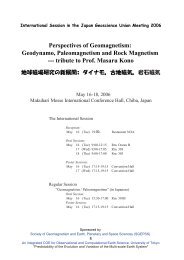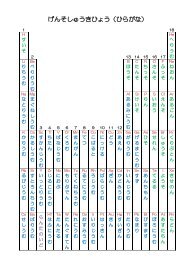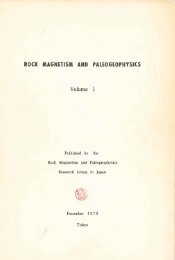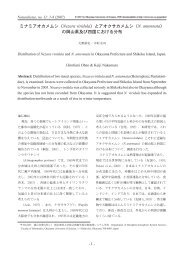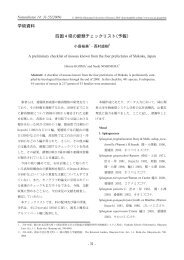Create successful ePaper yourself
Turn your PDF publications into a flip-book with our unique Google optimized e-Paper software.
<strong>Python</strong> <strong>Tutorial</strong>, Release 2.6.2<br />
This will print<br />
[1]<br />
[1, 2]<br />
[1, 2, 3]<br />
If you don’t want the default to be shared between subsequent calls, you can write the function like this instead:<br />
def f(a, L=None):<br />
if L is None:<br />
L = []<br />
L.append(a)<br />
return L<br />
4.7.2 Keyword Arguments<br />
Functions can also be called using keyword arguments of the form keyword = value. For instance, the<br />
following function:<br />
def parrot(voltage, state=’a stiff’, action=’voom’, type=’Norwegian Blue’):<br />
print "-- This parrot wouldn’t", action,<br />
print "if you put", voltage, "volts through it."<br />
print "-- Lovely plumage, the", type<br />
print "-- It’s", state, "!"<br />
could be called in any of the following ways:<br />
parrot(1000)<br />
parrot(action = ’VOOOOOM’, voltage = 1000000)<br />
parrot(’a thousand’, state = ’pushing up the daisies’)<br />
parrot(’a million’, ’bereft of life’, ’jump’)<br />
but the following calls would all be invalid:<br />
parrot()<br />
parrot(voltage=5.0, ’dead’)<br />
parrot(110, voltage=220)<br />
parrot(actor=’John Cleese’)<br />
# required argument missing<br />
# non-keyword argument following keyword<br />
# duplicate value for argument<br />
# unknown keyword<br />
In general, an argument list must have any positional arguments followed by any keyword arguments, where the<br />
keywords must be chosen from the formal parameter names. It’s not important whether a formal parameter has a<br />
default value or not. No argument may receive a value more than once — formal parameter names corresponding<br />
to positional arguments cannot be used as keywords in the same calls. Here’s an example that fails due to this<br />
restriction:<br />
>>> def function(a):<br />
... pass<br />
...<br />
>>> function(0, a=0)<br />
Traceback (most recent call last):<br />
File "", line 1, in <br />
TypeError: function() got multiple values for keyword argument ’a’<br />
When a final formal parameter of the form **name is present, it receives a dictionary (see Mapping Types — dict<br />
(in The <strong>Python</strong> Library Reference)) containing all keyword arguments except for those corresponding to a formal<br />
parameter. This may be combined with a formal parameter of the form *name (described in the next subsection)<br />
which receives a tuple containing the positional arguments beyond the formal parameter list. (*name must occur<br />
before **name.) For example, if we define a function like this:<br />
24 Chapter 4. More Control Flow Tools


